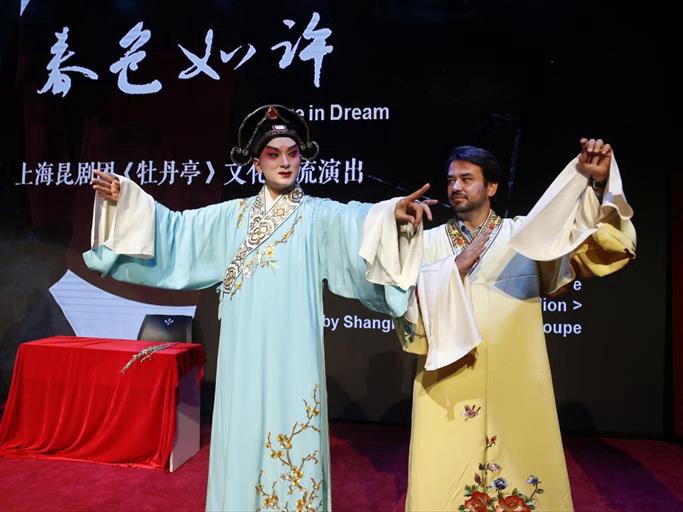With a history of more than 600 years, Kunqu is believed to be the mother of all traditional operas in China, showcasing the very essence of ancient Chinese music and performing art.
China is home to more than 300 genres of traditional opera, which can be divided into roughly two categories: the Peking Opera type and operas which follow the qupai or fixed-melody style. Of all traditional operas that use qupai, Kunqu follows the strictest rules. Performers sing to the accompaniment of traditional Chinese musical instruments like the flute, pipa or lute, the zither-like guzheng, and percussions.
Kunqu Opera boasts of excellent drama scripts, which are literary masterpieces in themselves like Peony Pavilion, The Palace of Eternal Youth, a 17th-century classic about an emperor's obsessed love for a lady in the court which leads to a coup and tragedy, and The Peach Blossom Fan, a play that chronicles the fall of the Ming Dynasty and reportedly took playwright Kong Shangren (1648-1718) more than a decade to write. The monologues by the leading characters are poetic, written in beautiful and romantic language.

Love is a permanent theme of Kunqu Opera. "The beauty of Kunqu is reflected in the way it understands, depicts and expresses sentiments, [especially] love," said Zhang Jingxian, a Kunqu artist acclaimed as a national intangible cultural heritage bearer. "Take Peony Pavilion for example. Du Liniang is confined to her residence but still pursues love with valor. She is even willing to die for true love, hoping she will be resurrected. This was not a common notion in the feudal society 600 years ago and is an important reason why Peony Pavilion is still so popular in today's modern society," said Zhang.
Given the sophisticated script, strict singing and performance criteria, and most importantly, the complicated sentiments to be conveyed, the bar for Kunqu performers is set very high. In the Kunqu Opera circle, there is a common saying that one minute on stage needs 10 years of practice.
According to Shao Tianshuai, a rising star in Kunqu, they have to read the script diligently, using ancient Chinese dictionaries to comprehend the meaning of each character. Then they have experienced teachers critiquing performances to push the performers closer to perfection.
Wang Pushi is studying Kunqu in Beijing Traditional Chinese Arts School. The 17-year-old was allowed to make his stage debut only after three and a half years of studying the opera. "I have to work very hard. I'm afraid I might damage its beautiful image if I treat it casually," the teenager said.



